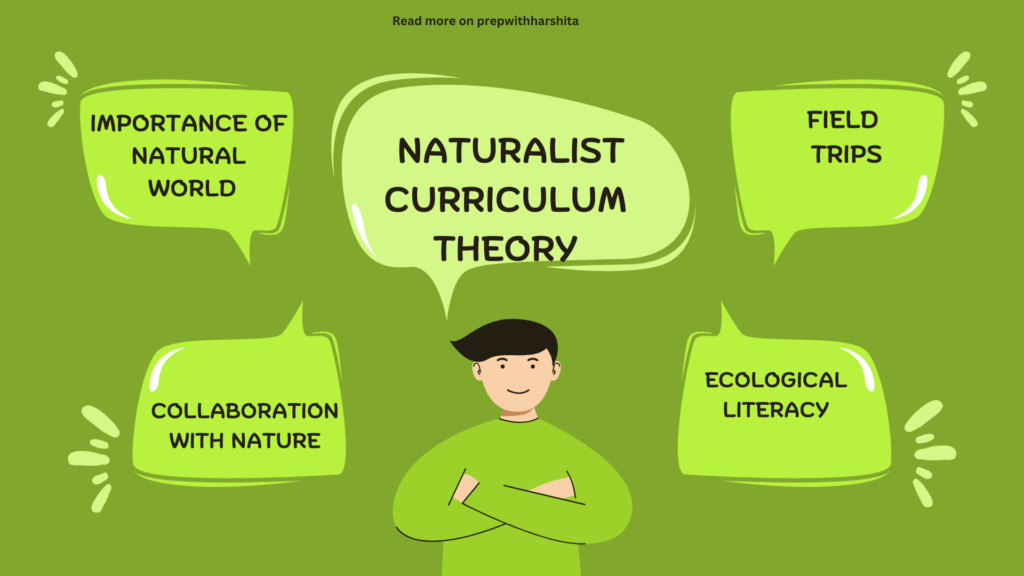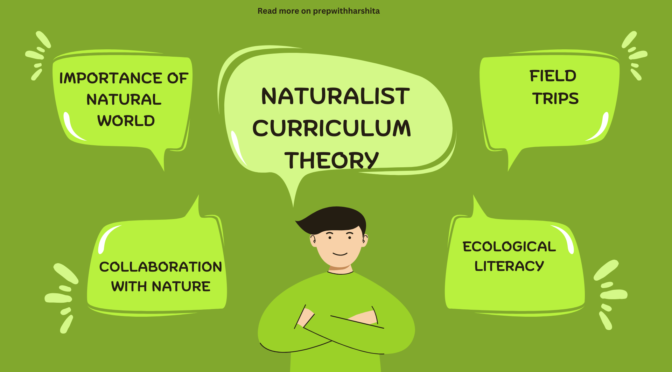Naturalist curriculum theory is an educational approach that emphasizes the importance of connecting students with nature and the natural world.
Basis of this Theory :
The theory is based on the idea that humans have an innate connection to the environment, and that learning through direct experience in nature can be more meaningful and effective than traditional classroom instruction.
The naturalist curriculum theory focuses on creating learning opportunities that involve direct experiences with nature, such as outdoor exploration, field trips, and hands-on activities like gardening and nature observation.
Some of the key features of this theory include:
- Learning through direct experience: The naturalist curriculum theory emphasizes the importance of hands-on, experiential learning in natural environments. Students are encouraged to observe, explore, and interact with the natural world to gain a deeper understanding of the environment.
- Ecological literacy: The theory stresses the importance of ecological literacy, which includes understanding the interdependence of living things and the environment, and the impact of human actions on ecosystems. Students are taught to think critically about environmental issues and to develop a sense of responsibility for environmental stewardship.
- Emphasis on holistic learning: This theory focuses on the importance of holistic learning and integrating knowledge and skills from different subject areas and applying them to real-world situations. This approach promotes a deeper understanding of the interconnectedness of different disciplines and the relevance of learning to daily life.
- Connection to community: The theory emphasizes the importance of connecting students with their local communities and the natural environments. This can help students develop a sense of place and a connection to the natural world.
- Use of technology: While the naturalist curriculum theory emphasizes learning through direct experience in nature, it also acknowledges the importance of technology in modern society. Technology can be used to enhance learning and support scientific inquiry and exploration in natural environments.
Overall, this theory is one of several educational approaches that aim to promote experiential learning. It has been influential in shaping environmental education programs around the world.
Also read: Pragmatism


